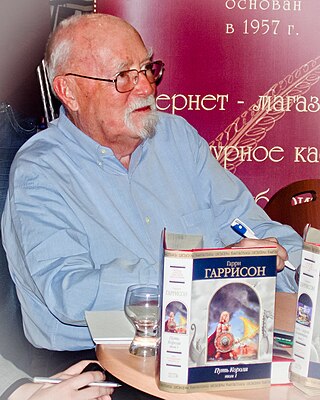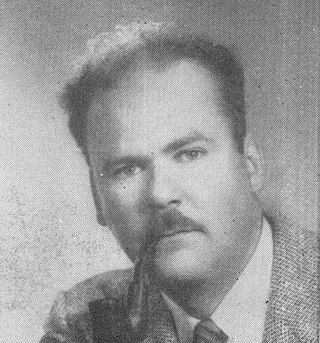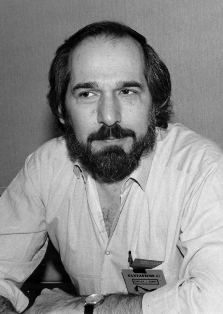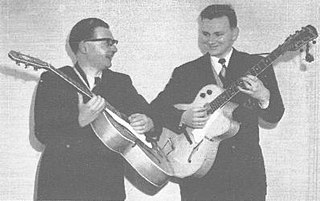
Brian Wilson Aldiss was an English writer, artist and anthology editor, best known for science fiction novels and short stories. His byline reads either Brian W. Aldiss or simply Brian Aldiss, except for occasional pseudonyms during the mid-1960s.

John Kilian Houston Brunner was a British author of science fiction novels and stories. His 1968 novel Stand on Zanzibar, about an overpopulated world, won the 1969 Hugo Award for best science fiction novel and the BSFA Award the same year. The Jagged Orbit won the BSFA Award in 1970.

Philip José Farmer was an American author known for his science fiction and fantasy novels and short stories.

Robert Shaw was a science fiction writer and fan from Northern Ireland, noted for his originality and wit. He won the Hugo Award for Best Fan Writer in 1979 and 1980. His short story "Light of Other Days" was a Hugo Award nominee in 1967, as was his novel The Ragged Astronauts in 1987.

Maurice Gough Gee is a New Zealand novelist. He is one of New Zealand's most distinguished and prolific authors, having written over thirty novels for adults and children, and has won numerous awards both in New Zealand and overseas, including multiple top prizes at the New Zealand Book Awards, the James Tait Black Memorial Prize in the UK, the Katherine Mansfield Menton Fellowship, the Robert Burns Fellowship and a Prime Minister's Award for Literary Achievement. In 2003 he was recognised as one of New Zealand's greatest living artists across all disciplines by the Arts Foundation of New Zealand, which presented him with an Icon Award.

Harry Max Harrison was an American science fiction author, known mostly for his character The Stainless Steel Rat and for his novel Make Room! Make Room! (1966). The latter was the rough basis for the motion picture Soylent Green (1973). Long resident in both Ireland and the United Kingdom, Harrison was involved in the foundation of the Irish Science Fiction Association, and was, with Brian Aldiss, co-president of the Birmingham Science Fiction Group.
Alexei Panshin was an American writer and science fiction critic. He wrote several critical works and several novels, including the 1968 Nebula Award–winning novel Rite of Passage and, with his wife Cory Panshin, the 1990 Hugo Award–winning study of science fiction The World Beyond the Hill.

Dallas McCord "Mack" Reynolds was an American science fiction writer. His pen names included Dallas Ross, Mark Mallory, Clark Collins, Dallas Rose, Guy McCord, Maxine Reynolds, Bob Belmont, and Todd Harding. His work focused on socioeconomic speculation, usually expressed in thought-provoking explorations of utopian societies from a radical, sometime satiric perspective. He was a popular author from the 1950s to the 1970s, especially with readers of science fiction and fantasy magazines.

Cherry Barbara Grimm, better known by the pseudonym Cherry Wilder, was a New Zealand science fiction and fantasy writer.

Christopher Mackenzie Priest was a British novelist and science fiction writer. His works include Fugue for a Darkening Island (1972), The Inverted World (1974), The Affirmation (1981), The Glamour (1984), The Prestige (1995), and The Separation (2002).
Lewis Padgett was the joint pseudonym of the science fiction authors and spouses Henry Kuttner and C. L. Moore, taken from their mothers' maiden names. They also used the pseudonyms Lawrence O'Donnell and C. H. Liddell, as well as collaborating under their own names.
Tensei Kono was a prominent Japanese mystery and science fiction writer who won the Mystery Writers of Japan Award and was a two-time finalist for the Naoki Prize. His short fiction including his often-reprinted story "Triceratops" has been translated into English in anthologies such as Speculative Japan: Outstanding Tales of Japanese Science Fiction and Fantasy, The Best Japanese Science Fiction Stories and The World Treasury of Science Fiction. In total, he published more than 30 novels and short story collections.

Edwin Charles Tubb was a British writer of science fiction, fantasy and western novels. The author of over 140 novels and 230 short stories and novellas, Tubb is best known for The Dumarest Saga, an epic science-fiction saga set in the far future. Michael Moorcock wrote, "His reputation for fast-moving and colourful SF writing is unmatched by anyone in Britain."

Charles Lewis Grant was an American novelist and short story writer specializing in what he called "dark fantasy" and "quiet horror". He also wrote under the pseudonyms of Geoffrey Marsh, Lionel Fenn, Simon Lake, Felicia Andrews, Deborah Lewis, Timothy Boggs, Mark Rivers, and Steven Charles.

The Quiet Earth is a 1985 New Zealand post-apocalyptic science fiction film directed by Geoff Murphy and starring Bruno Lawrence, Alison Routledge and Peter Smith as three survivors of a cataclysmic disaster. It is loosely based on the 1981 science fiction novel of the same name by Craig Harrison. Other sources of inspiration have been suggested: the 1954 novel I Am Legend, Dawn of the Dead, and especially the 1959 film The World, the Flesh and the Devil, of which it has been called an unofficial remake.
Lee John Harding was an Australian freelance photographer, who became a writer of science fiction novels and short stories.
Thomas A. Easton is a teacher and well-known science fiction critic and author. He retired as a professor from Thomas College of Maine in 2014 and now teaches part-time at Mount Ida College in Newton, MA.

Dan Morgan was an English science fiction writer and a professional guitarist, mainly active as a writer from the early 1950s through the mid-1970s. In addition to his fiction, he wrote two manuals relating to his musical profession.

Science Fiction: The 100 Best Novels, An English-Language Selection, 1949–1984 is a nonfiction book by David Pringle, published by Xanadu in 1985 with a foreword by Michael Moorcock. Primarily, the book comprises 100 short essays on the selected works, covered in order of publication, without any ranking. It is considered an important critical summary of the science fiction field.
Hugh Zachary was an American novelist who has written science fiction novels under the pseudonyms Zach Hughes and Evan Innes. His other pseudonyms include Peter Kanto and Pablo Kane. He described himself as "the most published, underpaid, and most unknown writer in the U.S."














